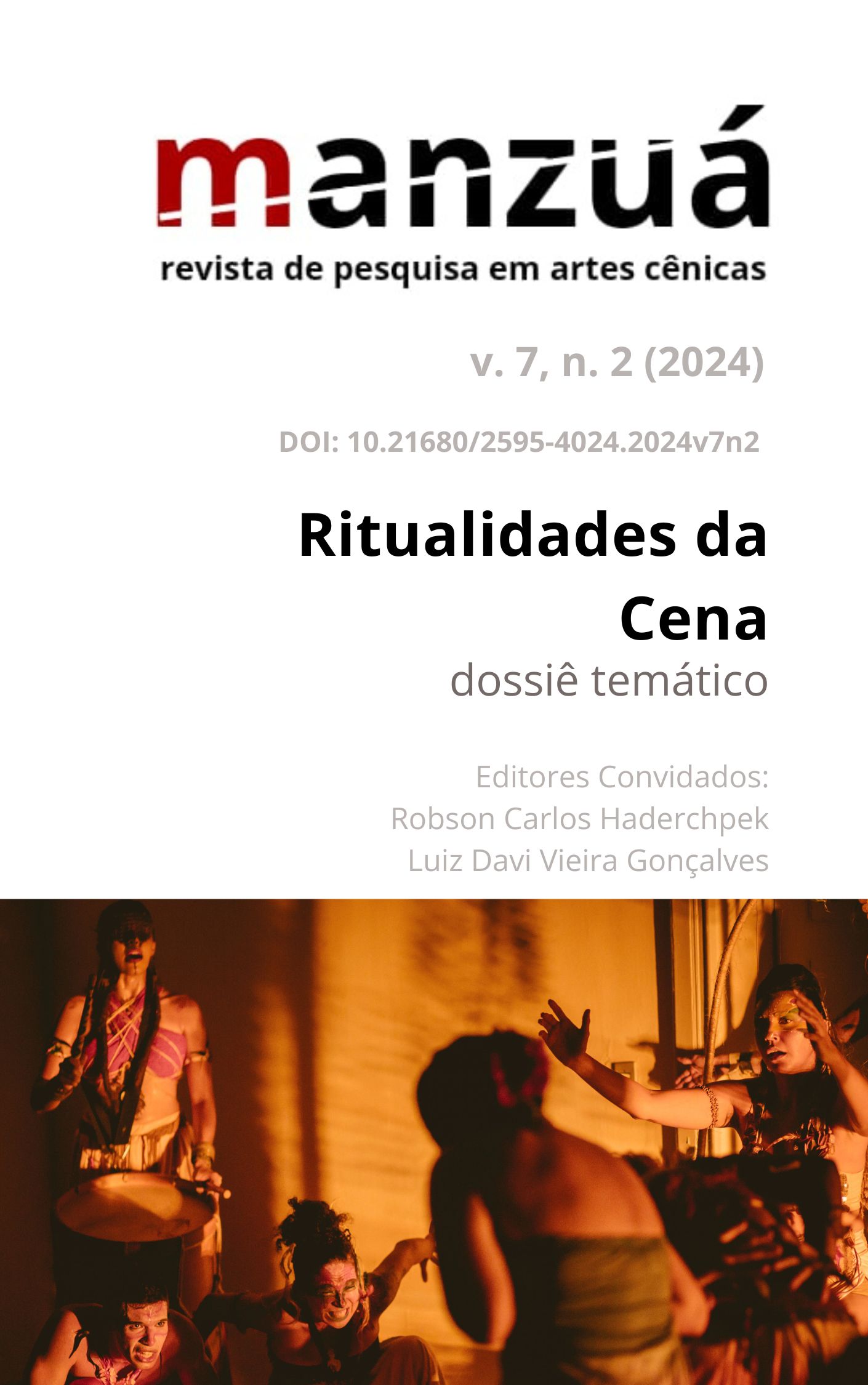TEATRO, EDUCAÇÃO E BEM VIVER
PRÁTICAS EDUCACIONAIS PARA A SUSTENTABILIDADE
DOI:
https://doi.org/10.21680/2595-4024.2024v7n2ID36837Abstract
This research proposes to think of a route of clues that can be used in formal and informal contexts of education in order to learn new relational forms - social, corporal organization and political practices - that encompass a sustainable lifestyle, inspired by the ideals of Good Living by Alberto Acosta (2019). The construction of this thought will start from bodily practices founded on the Ritual Theater (HADERCHPECK, 2020), on the Poetics of Elements (HADERCHPECK, 2016) and on the propositions of Good Living, thus intending to instigate the imagination of students as to possible learning paths of feeling, being, living in harmony and balance with oneself, between oneself and the other, and between man and nature. To carry out this work, a bibliographic survey of research in the field of environment and sustainability was carried out, as well as works that applied ritual theater in the educational context, in the awakening of the body in relation to the elements of nature. After analyzing this material, correlations were made between the principles that emerged from the practice of ritual theater and the promotion of environmental awareness.
Downloads
Downloads
Published
How to Cite
Issue
Section
License
Copyright (c) 2024 Thazio Menezes, André Luiz Rodrigues Bezerra

This work is licensed under a Creative Commons Attribution-NonCommercial-ShareAlike 4.0 International License.
Autores que publicam nesta revista concordam com os seguintes termos:
Autores mantém os direitos autorais e concedem à revista o direito de primeira publicação, com o trabalho simultaneamente licenciado sob a Licença Creative Commons Attribution que permite o compartilhamento do trabalho com reconhecimento da autoria e publicação inicial nesta revista.
Autores têm autorização para assumir contratos adicionais separadamente, para distribuição não-exclusiva da versão do trabalho publicada nesta revista (ex.: publicar em repositório institucional ou como capítulo de livro), com reconhecimento de autoria e publicação inicial nesta revista.
Autores têm permissão e são estimulados a publicar e distribuir seu trabalho online (ex.: em repositórios institucionais ou na sua página pessoal) a qualquer ponto antes ou durante o processo editorial, já que isso pode gerar alterações produtivas, bem como aumentar o impacto e a citação do trabalho publicado (Veja O Efeito do Acesso Livre).


 Português (Brasil)
Português (Brasil) English
English Español (España)
Español (España) Français (Canada)
Français (Canada)